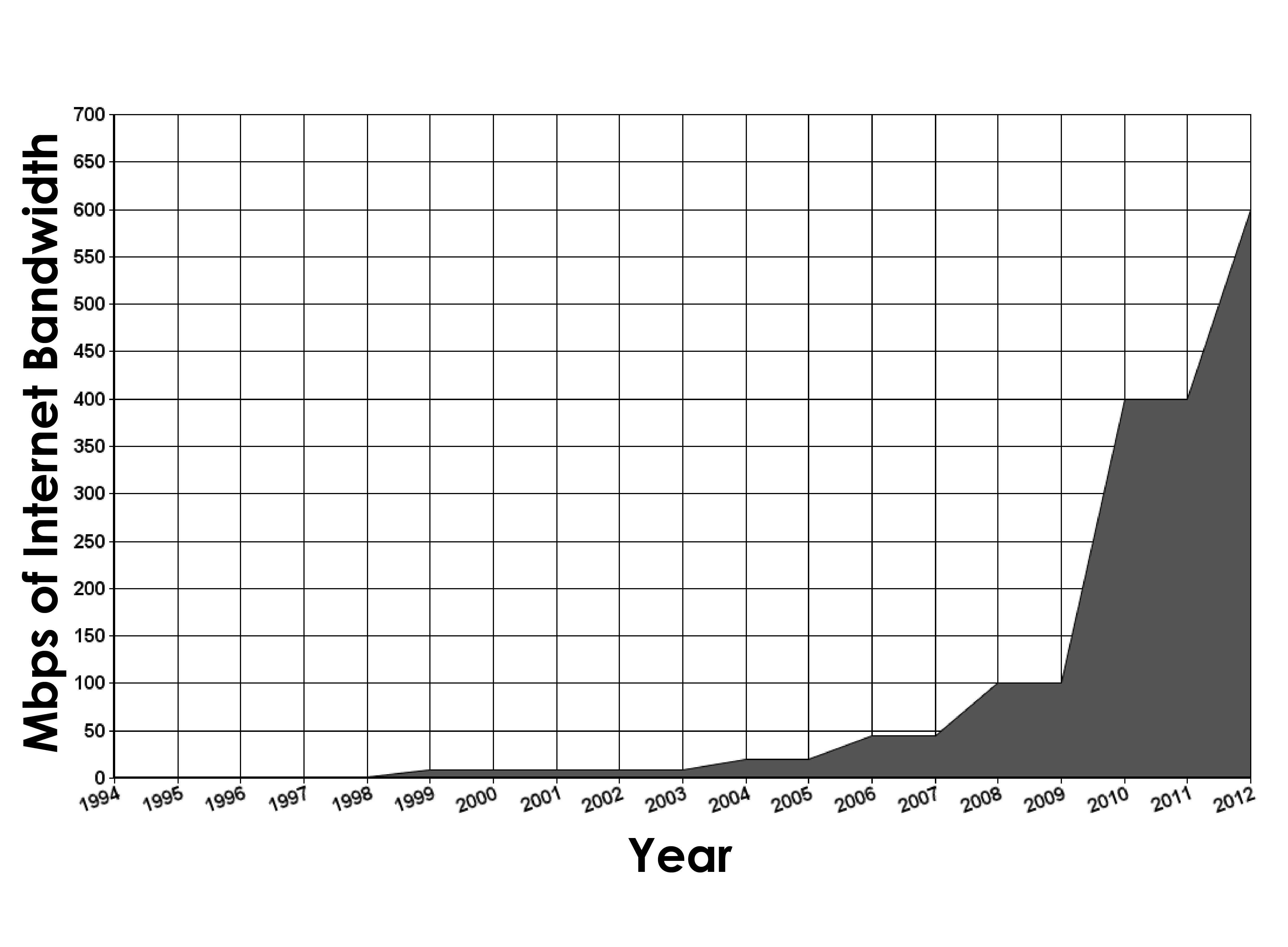
Due to the significant increase in the use of technology on campus, Biola's bandwidth has been increased from 300 megabites per second to a 500 Mbps connection. | Laura Daronatsy/THE CHIMES
Through contract negotiations and on-campus projects, the Information Technology department has been increasing Internet bandwidth to handle the digital traffic that comes with the ever-increasing number of students and the devices they bring with them.
A recent study by Educause, a panel for collegiate information technology departments, brought up the issue of the increase of Internet accessing devices on college campuses and the effect they have on Internet connections.
BIOLA COMPENSATES FOR "DEVICE EXPLOSION"
Like many other colleges, Biola is striving to compensate for what Educause has dubbed the “device explosion,” according to Scott Himes, director of network operations for the IT department.
Over the course of the last year, one of the two Internet connections at Biola has been increased from a 300 megabits per second to a 500 Mbps connection, going through the Internet service provider Highwinds. Coupled with another 100 Mbps from a separate Internet service provider, Cogent Communications, the campus is now home to a 600 Mbps Internet capacity, according to Himes. In a story written in 2008 by the Chimes, the change of the Internet bandwidth increased from 45 Mbps to 100 Mbps, which is only one-sixth of what Biola offers today.
“I think we’re right on pace,” Himes said. “I think we actually have been able to be fairly aggressive in our deployment, both in our Internet connection … and then from a wireless perspective … covering the entire campus in WiFi where it hadn’t been fully covered before.”
NEW DEVICES STRAIN INTERNET BANDWIDTH
The increase in devices accessing the Internet, such as smartphones, laptops and tablets puts a strain on the Internet bandwidth, which is the measure of how fast bits of data can transfer within a given time period. More devices accessing the Internet generally means the connection will be slower, and students will have to wait longer for their web pages to load.
Through IT’s efforts, the Biola Internet bandwidth has grown exponentially over the last few years, Himes said.
“We really beefed up our wireless network over these last couple of years, added additional controllers, which are kind of like the brains in the data center down here, and we’ve gotten a lot more access points or routers around campus,” he said.
With regards to the financial costs of such ventures, according to Himes, the reality was different than one might expect.
“We’ve actually been very aggressive about getting the costs down. We actually have more bandwidth now than before for less money,” he said.
STUDENT VIEWS ON WIFI
The student views on campus WiFi are mixed. Christian Misi, a sophomore kinesiology major who lives in Horton, has doubts about the Internet’s stability.
“I think [the WiFi] is alright, but I live in a dorm where it cuts in and out. I know my roommate has a lot of problems with that sometimes,” he said. “I just wish it was more reliable.”
Dakari Archer, a freshman criminal justice major, thought the on-campus Internet connection was actually quicker than the one he had at home.
“I think it’s pretty good,” Archer said. “In certain spots, the WiFi is kind of slow, but overall, I think it’s fast.”
Unlike years past, no major complaints have been raised over slow Internet connection, according to Himes.
“I think we’re in a really good place with our Internet connectivity and wireless network, and we continue to improve it year by year,” he said.







